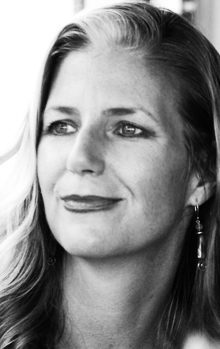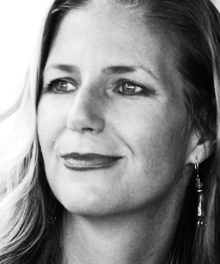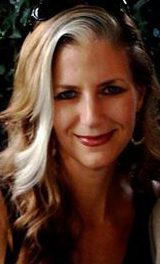 By Margaret Evans, Editor
By Margaret Evans, Editor
If you went looking for me lately, you probably found me with my face in a book. Or an aspiring book (aka manuscript). Or bound galleys of an almost book. Or maybe it was a press release about a book. Not only have I just landed a couple of juicy editing jobs, but suddenly, there’s this crazy tsunami of literary energy here in Beaufort.
My editor’s inbox runneth over – books to be reviewed, authors to be interviewed, book events to be previewed, etc. Did you know the Short Story America Festival’s happening later this month? The Friends of the Library Annual Book Sale, too? It’s raining books! Hallelujah.
I just finished reading my friend Teresa Bruce’s dazzling new “rememoir” about dance legend Byrne Miller (see Mark Shaffer’s interview on page 16 and my review on page 18), and am now devouring the galleys of Pat Conroy’s long-anticipated memoir The Death of Santini, out next month. (Pat may soon be better known as “Mr. Cassandra King,” as her new book Moonrise is being swooned over far and wide.) Before that, I knocked out The Headmaster’s Papers, the award-winning novel by Richard Hawley, who’s coming to town for the Short Story America Festival. (See the schedule on page 10, and look for my interview with Hawley in our next issue.) I also plowed through the manuscript of Honey From a Lion, by former Lowcountry resident, poet-novelist Fred Bassett; that’ll be out next year. Through it all, I’ve been editing children’s and young adult books, and reading manuscripts from southern fiction writers hoping to be published.
In short, it’s not just raining books at my house; it’s pouring. But I’m not complaining. I’m singin’ in the rain, baby! This literary cram session has been good for me. I’ve got some mental rewiring to do, and I feel like I’m on my way.
I’ve always been a reader and a literature lover – even did my graduate work in English – but in recent years, I’ve found myself spending more and more time on the Internet, reading news reports, articles, opinion pieces, blogs, Facebook threads . . . you know the drill. (You do it, too, right? RIGHT?) Gradually, I found I had less and less time for books. And when I did make time, I found I’d become a bad book reader. I’d lost my powers of concentration and contemplation. My focus had become scattered, fragmented. Thanks to the Internet, I knew a little bit about a wide range of subjects – probably wider than ever before – but I’d lost my ability to go deep.
One positive thing I’ll say about life on the ‘net is that, occasionally, I stumble over essays like the one excerpted below – by Rebecca Solnit at the London Review of Books – that tell me I’m not alone. She says the Internet and other modern forms of communication have brought about an actual change in Human Character; that we’re all in it together, as a species. Solnit says the metamorphosis began around 1995, and that sounds about right to me.
“Our lives are [now] a constant swirl of information, of emails that can be checked on phones, and phones that are checked in theatres and bedrooms, for texts and news that stream in constantly… Data are interrupted by other data before we’ve thought about the first round, and contemplating three streams of data at once may be a way to think about none of them. . . Nearly everyone I know feels that some quality of concentration they once possessed has been destroyed. Reading books has become hard; the mind keeps wanting to shift from whatever it is paying attention to to pay attention to something else. A restlessness has seized hold of many of us, a sense that we should be doing something else, no matter what we are doing, or doing at least two things at once, or going to check some other medium. It’s an anxiety about keeping up, about not being left out or getting behind.”
I stopped reading after that. The essay got a little long and there was a flashing Zappos ad I had to check out . . .
I kid. I bucked up and read the whole thing. It’s an elegy of sorts, an ode to the way we were, pre-Internet. Once upon a time, long, long ago – before 1995 – there was a soothing rhythm to our days (and our data consumption), marked by the delivery of the morning paper, the afternoon mail, and the nightly news. There was an ebb and flow of information and activity; not everything happened all at once, all the time.
We don’t live in that world anymore, and Solnit warns that it won’t be easy to go back – back to the old, slower way of thinking and being. She believes that many are trying, though – even though they may not be conscious of their quest – and she points to things like the “slow food movement,” for example, and the growing popularity of gardening and knitting and bread making. Anything that takes practice, patience, concentration. Anything that takes us away from our frantic, ubiquitous screens. Anything that allows us, or preferably requires us, to Slow. The Heck. Down.
Let me add to that list the reading of books. Not articles, not essays, not blogs or columns or comment threads . . . but books. Long, involved books that demand a sustained commitment. Your gratification will not be instant, but it will be far more satisfying and lasting. And your brain will begin to repair itself, almost like a computer that’s rebooting. You will literally feel your mind beginning to run more efficiently, honing in, reintegrating, “force quitting” all those distracting, memory-gobbling apps you’ve left open on your cerebral desktop. Slowly, surely, a strange feeling will descend upon you, vaguely familiar, nostalgic even – a sense of being both perfectly calm and intensely alert – and you’ll think, “Yes! That! That’s what I’ve been missing!” I tell you, it’s a beautiful thing.
But this mental reboot doesn’t come easy or free. As with everything in life, there is a trade-off. Spending the majority of your reading hours with books instead of the Internet will rob you of that tasty sense of being “in the know.” Mark my words: you will miss things. Some of those things will be important, some not so important. You may pop into cyberspace after a few days away and find that everybody’s tossing around some word you’ve never heard before – “twerking,” for instance – and you will feel supremely out of it. Or you’ll drop by Facebook and find that everyone you know is deeply and righteously certain of what we should do – or not do – about Syria, while you couldn’t form a proper opinion if you tried. Or you’ll find that Australia has a new prime minister, when you hardly knew the old one . . . or that they’ve already cast the “50 Shades of Grey” movie, and you hadn’t even heard they were making one.
As I said, it’s a trade-off.
And, as with all things, moderation is the key. Just as I would never endorse drinking merrily from sunrise to sunset and beyond – but I heartily endorse happy hour – so it is with the Internet, and with the reading of articles, essays, blog posts and such. As a columnist and editor of a newsweekly – with a website! – far be it from me to suggest you go cold turkey with that stuff. It’s all about balance, people.
I realize that some of you have no need of this advice . . . that some of you, in fact, have balance out the wazoo. But mine has been insidiously and rather brutally compromised by excessive Internet use, and I’m finding that books are a very effective treatment. Possibly even a cure. I figured that was info worth sharing.
Oh, and if you’re just not a book kind of person, I hear that cross-stitch is good, too.





